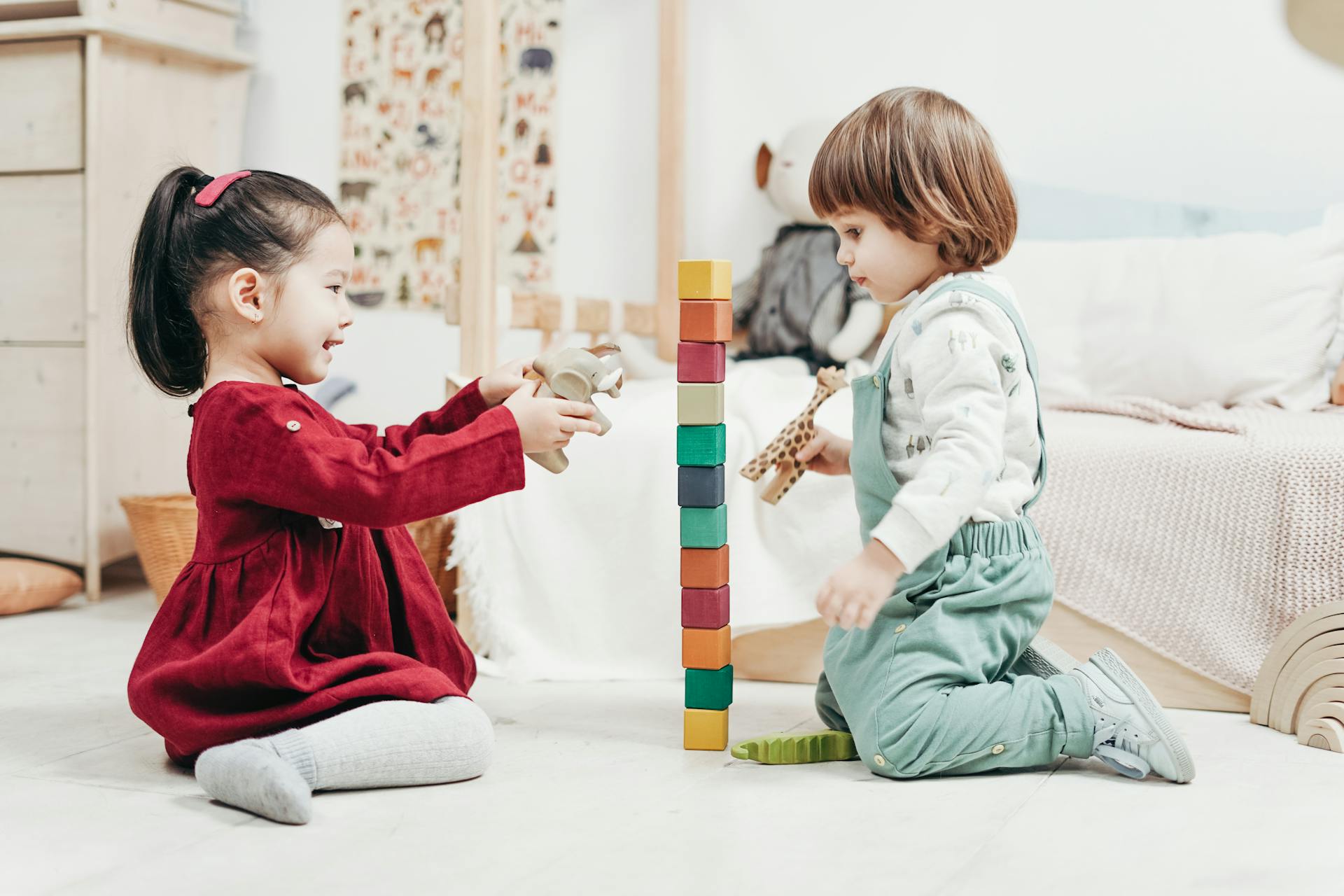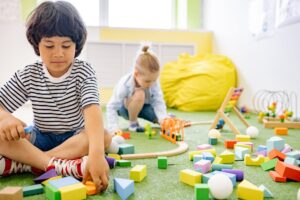
The Power of Educational Playtime
Young children learn best when they’re having fun. Educational playtime is a way to combine learning and play. It helps kids grow their minds, bodies, and social skills while keeping them engaged and happy.
Educational playtime means learning through play. It turns everyday fun into moments of discovery. Kids can explore, solve problems, and use their imagination.
Unlike traditional learning, it doesn’t feel like work. Instead, kids get to play while developing essential skills.
Why Is Educational Playtime Important?
Here are some key benefits of educational play:
Builds Thinking Skills
Activities like puzzles, sorting, and matching help kids learn to problem-solve and improve memory.
Improves Social Skills
Playing with others teaches kids to share, take turns, and cooperate. Role-playing games also help them understand others’ feelings.
Supports Emotional Growth
Play lets kids express themselves. It teaches patience and builds confidence when they finish a task or create something new.
Boosts Physical Development
Active play, like running or climbing, helps kids grow stronger. It also improves hand-eye coordination and motor skills.
Easy Educational Play Ideas
You don’t need expensive toys to make learning fun. Try these simple ideas at home:
- Crafts: Use paper, crayons, or recycled items to create art. This helps kids use their hands and express creativity.
- Building Blocks: Have kids build towers or other structures. This teaches problem-solving and focus.
- Nature Walks: Go outside and explore. Collect leaves, watch birds, or count flowers.
- Pretend Play: Let kids act out roles like chef, teacher, or doctor. This helps their imagination and social skills grow.
How Daycares Use Playtime
Good daycares make playtime a big part of learning. Teachers plan activities that are fun and educational.
For example, kids might play in a sensory bin, listen to stories, or try simple science experiments. These activities help them learn new things in exciting ways.
Daycares also encourage group play. This helps kids build friendships and learn teamwork.
Technology and Play
Some apps and games can be valuable tools for learning. They can teach kids numbers, letters, and shapes. But screen time should be limited. Hands-on play is still the best way for kids to grow.
Helping Kids Love Learning
Educational playtime helps kids see learning as fun. It builds skills and confidence while they play. These moments at home or daycare lay the foundation for a lifetime of curiosity.
So grab some crayons, blocks, or a puzzle, and start exploring the world of learning through play!
For more information like this, please visit AMC blogs.
By: Melissa A. Kay
